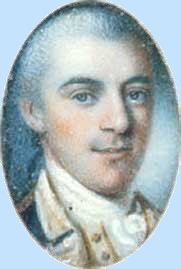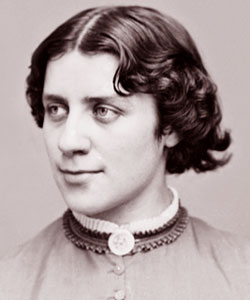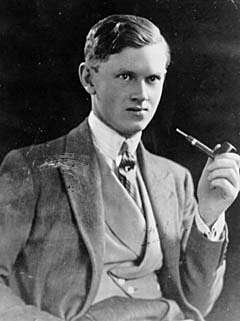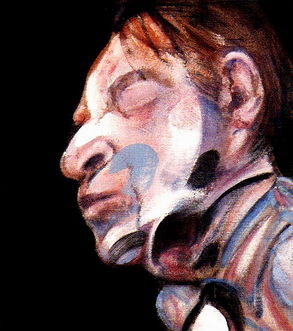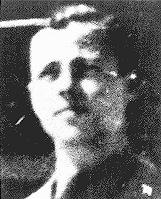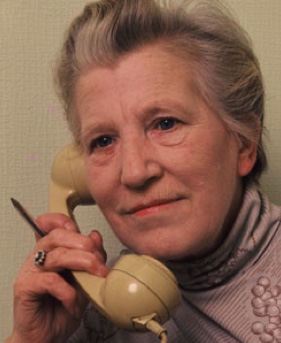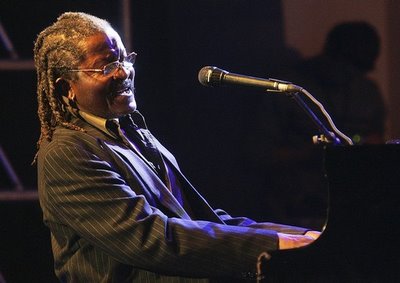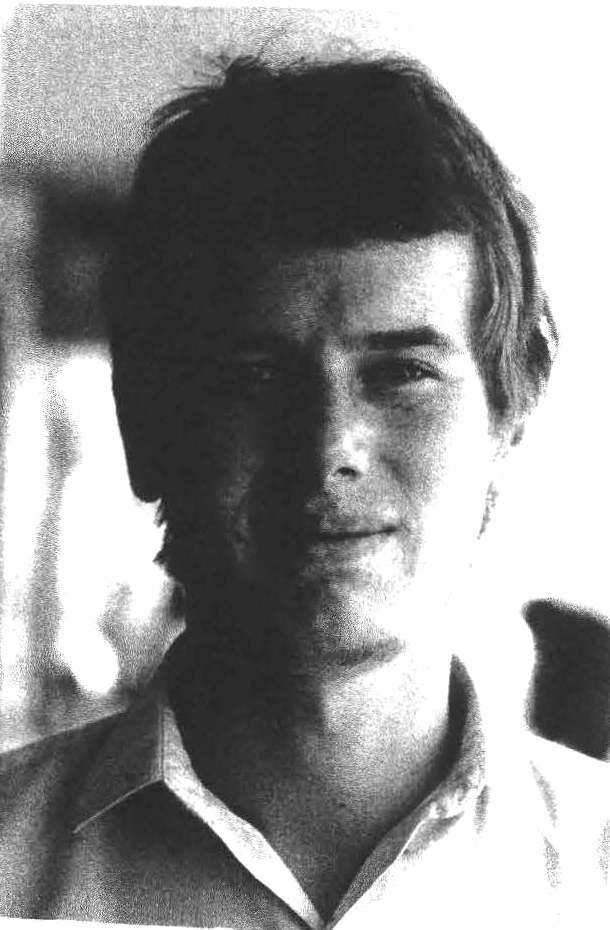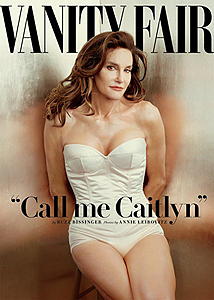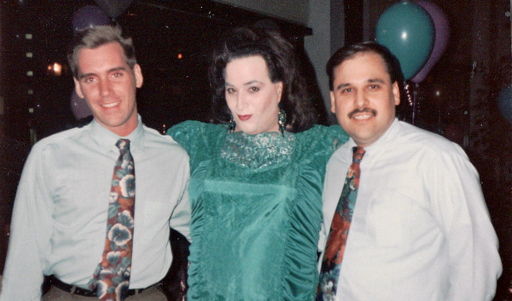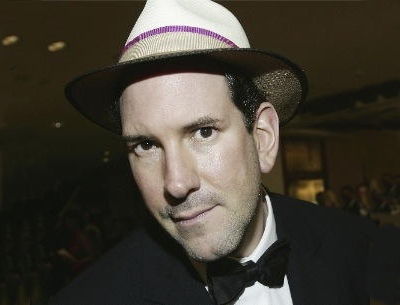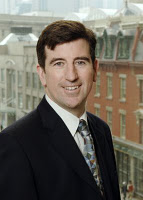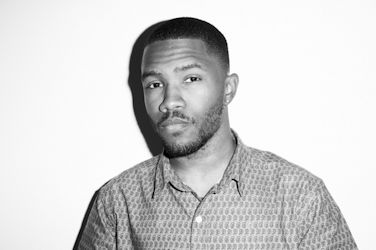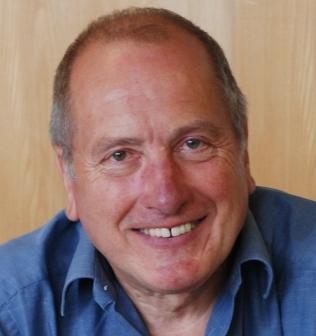|
presents THIS DAY IN GAY HISTORY based on: The White Crane Institute's 'Gay Wisdom', Gay Birthdays, Gay For Today, Famous GLBT, glbt-Gay Encylopedia, Today in Gay History, Wikipedia, and more …
Collected by Ted October 28 [{(o)}]|[{(o)}]|[{(o)}]|[{(o)}]| [{(o)}]|[{(o)}]
1466 – Erasmus was a Dutch humanist and theologian, who merits serious consideration by queer people of faith. Born Gerrit Gerritszoon, he became far better known as Desiderius Erasmus of Rotterdam: Erasmus was his saint's name, after St. Erasmus of Formiae; Rotterdam, for the place of his birth (although he never lived there after the first few years of early childhood; and "Desiderius" a name he gave himself - "the one who is desired". He left a legacy as a scholar and church reformer. His career spanned the years leading up to, and after, Martin Luther's break with the Catholic Church that became the Protestant Reformation. Prior to the split, Erasmus had himself been fiercely critical of the Church, arguing forcefully for reform of the many and manifold abuses. He had close relationships with Luther and many other leading members of the Reformation movement, which his ideas strongly influenced. However, when the break came, he chose to remain formally inside the church structures, and not outside of it. Some LGBT activists have hailed Erasmus as a gay icon from history. Circa Club for instance has no doubt, using that precise term and including Erasmus in it's collection of historical gay icons. The primary basis of the claim is a series of passionate love letters he wrote to a young monk Servatius Rogerus. While at the Augustinian monastery at Stein near Gouda around 1487, Erasmus wrote passionate letters of friendship to the fellow monk, whom he called "half my soul", writing, "I have wooed you both unhappily and relentlessly"; this correspondence contrasts sharply with the generally detached and much more restrained attitude he showed in his later life. There were also allegations of improper advances made to the young Thomas Grey, later Marquis of Dorset, while employed as his tutor.Erasmus's best-known work was The Praise of Folly, a satirical attack on the traditions of the Catholic Church and popular superstitions, written in 1509, published in 1511 and dedicated to his friend, Sir Thomas More.
Laurens was born in Charleston, South Carolina. After tutoring at home and the death of his mother, John and his two younger brothers were taken by their father to England. John completed his education in Europe, first in London, then in Geneva. As a youth, he yielded to his father's wish that he study law in London. In late 1776, John was obliged, "out of pity," to marry Martha Manning, the daughter of one of his father's London agents, and in December he sailed for Charleston. He left his wife behind, pregnant with a daughter who he would never see. In the summer of 1777, he accompanied his father, Henry Laurens, on the trip to Philadelphia where Henry was to serve in the Continental Congress and where in spite of his father's strong objections, John continued on to Washington's camp as a volunteer. Laurens joined the main army of the Continental Army and within a month, following the Battle of Brandywine, was made officially an aide-de-camp to General Washington with the rank of Lieutenant Colonel. He became very good friends with his fellow aides, Alexander Hamilton, and with the Marquis de Lafayette. He also gave the first demonstrations of his tendency to reckless courage at the Battles of Brandywine, Germantown in which he was wounded, and Monmouth where his horse was shot out from under him. As the British stepped up operations in the South, Laurens, who had long argued that "We Americans at least in the Southern Colonies, cannot contend with a good Grace, for Liberty, until we shall have enfranchised our Slaves," promoted the idea of arming slaves and granting them freedom in return for their service, and in early 1778 requested, as a start, 40 slaves from his father, which Henry, now President of the Continental Congress, granted but with such serious reservations about the practicality that John temporarily relinquished the project. In March 1779 Congress approved this idea, commissioned him Lieutenant Colonel, and sent him south to implement a regiment of 3000. He won election to the South Carolina House of Representatives, and introduced his black regiment plan in 1779 and 1780 (and again in 1782) only to meet overwhelming rejection each time. His belief that blacks shared a similar nature with whites and could aspire to freedom in a republican society set Laurens apart from other leaders in revolutionary South Carolina. There is evidence of Laurens enjoying a sexual and loving relationship with Alexander Hamilton. These reports are based upon letters Hamilton wrote Laurens during a period in which Laurens was absent from the camp. In preparing a biography, Hamilton's family actually crossed out parts of letters they each sent one another. Suspiciously enough many of Laurens letters to Hamilton are missing. But the language in Hamilton's letters reveal a profound love for Laurens. Indeed Hamilton was never as emotionally open with any other man in his lifetime, and the depths of sentiment are equaled only in letters he wrote to his wife Eliza. Hamilton wrote: "Cold in my professions, warm in my friendships, I wish, my Dear Laurens, it might be in my power, by action rather than words, to convince you that I love you." In September 1779, gently chiding Laurens for not corresponding as often as he would have liked, Hamilton wrote, "like a jealous lover, when I thought you slighted my caresses, my affection was alarmed and my vanity piqued." Looking beyond the successful conclusion of the war, Hamilton suggested that both of them should be members of the congress of the new country. "We have fought side by side to make America free, let us hand in hand struggle to make her happy," he wrote in a letter ending, "Yours forever." Laurens probably never read this letter as he was killed in a skirmish a few days after it was written.
1824 - French historian Astolphe de Custine is beaten by soldiers he solicited. He reluctantly files charges against them.
1842 – Anna Elizabeth Dickinson (d.1932) was an American orator and lecturer. An advocate for the abolition of slavery and for women's suffrage, as well as a gifted teacher, Dickinson was the first woman to speak before the United States Congress. A gifted speaker at a very young age, she aided the Republican Party in the hard-fought 1863 elections and significantly influenced the distribution of political power in the Union just prior to the Civil War. Dickinson also was the first white woman on record to climb Colorado's Longs Peak, in 1873. Lillian Faderman's Odd Girls and Twilight Lovers: A History of Lesbian Life in Twentieth-Century America, has published her love letters to a number of women including Susan B. Anthony.
1864 – A trial court in Utah dismisses the sodomy charge against a man because Utah has no sodomy law. Later that day, the man, Frederick Jones, is murdered (apparently by his partner's father) but the murderer is released due to a lack of witnesses.
1867 – A Cleveland newspaper reports that a man who sexually assaulted a boy was provided by the court only with "lodging for the night."
The overt homosexuality of his brother Alec Waugh may have caused Evelyn to hide his own tendencies behind two marriages and seven children. Alec Waugh, like their father, publisher Arthur Waugh, had gone to school at Sherborne, and it was assumed that Evelyn would follow. However, in 1915 Alec was asked to leave, after a homosexual relationship came to light. He departed for military training, and while waiting for his commission to be confirmed wrote a novel of school life, The Loom of Youth, which was published by Chapman and Hall. The novel, which alluded to homosexual friendships in what was recognisably Sherborne, caused a public sensation and offended the school sufficiently to make it impossible for Evelyn to go there. Much to his annoyance he was sent in May 1917 to Lancing, in his view a decidedly inferior establishment. He later went to Oxford. He arrived in Oxford in January 1922; in October 1922 the arrival of the sophisticated Etonians Harold Acton and Brian Howard changed Waugh's Oxford life. Acton and Howard rapidly became the centre of an avant-garde circle known as the Hypocrites, whose artistic, social and homosexual values Waugh adopted enthusiastically; he later wrote: "It was the stamping ground of half my Oxford life". He began drinking heavily, and embarked on the first of several homosexual relationships, the most lasting of which were with Richard Pares and Alastair Graham. After gallantly protecting T. S. Eliot from "the specious assumption that he was homosexual," T.S. Matthews in Great Tom, suddenly became viciously ungallant: "It is peppery, glaring little men like Evelyn Waugh who are sexually suspect - as his diaries bear witness." Indeed, his diaries do clearly reveal him as a Gay man. But then so do his novels, particularly Brideshead Revisited, in which the friendship of Charles and Sebastian, despite the limitations of what he was allowed to write in the early 1940s, is magnificently drawn.
1909 – The Anglo-Irish born painter Francis Bacon (d.1992) was a descendant of the Elizabethan philosopher Francis Bacon. His artwork is well known for its bold, austere, and often grotesque or nightmarish imagery. Bacon's painterly but abstract figures typically appear isolated in glass or steel geometrical cages set against flat, nondescript backgrounds. He began painting during his early 20s and worked only sporadically until his mid 30s. Before this time he drifted, earning his living as an interior decorator and designer of furniture and rugs Bacon early discovered that he attracted a certain type of rich man, an attraction he was quick to take advantage of, having developed a taste for good food and wine. One of the men was an ex-army friend of his father, another breeder of race-horses, named Harcourt-Smith. Bacon later claimed that his father had asked this friend to take him 'in-hand' and 'make a man of him'. Francis had a difficult relationship with his father, once admitting to being sexually attracted to him. Doubtless, Eddy Bacon was aware of his friend's reputation for virility, but not of his penchant for young men. In the early Spring of 1927 Bacon was taken by Harcourt-Smith to the opulent, decadent, "wide open" Berlin of the Weimar Republic, staying together at the Hotel Adlon. His visit to a 1927 exhibition of 106 drawings by Picasso at the Galerie Paul Rosenberg, Paris, aroused his artistic interest, and he often took the train to Paris five or more times a week to see shows and art exhibitions. In 1929 he met Eric Hall at the Bath Club, Dover Street, London, where Bacon was working at the telephone exchange. Hall (who was general manager of Peter Jones) was to be both patron and lover to Bacon, in an often torturous relationship. In 1964, Bacon began a relationship with 39-year-old Eastender George Dyer, whom he met, he claimed, while the latter was burgling his apartment. A petty criminal with a history of juvenile detention and prison, Dyer was a somewhat tortured individual, insecure, alcoholic, appearance obsessed and never really fitting in within the bohemian set surrounding Francis. The relationship was stormy and in 1971, on the eve of Bacon's major retrospective at the Paris Grand Palais, Dyer committed suicide in the hotel room they were sharing, overdosing on barbiturates. The event was recorded in Bacon's 1973 masterpiece Triptych, May-June 1973. In 1974, Bacon met John Edwards, a young, illiterate, handsome Eastender with whom he formed one of his most enduring friendships, eventually bequeathing his £11m fortune to Edwards after his death. Bacon died of a sudden heart attack on April 28, 1992, in Madrid, Spain. Bacon bequeathed his entire estate (then valued at eleven million pounds) to John Edwards after his death. Edwards, in turn, donated the contents of Francis Bacon's chaotic studio in South Kensington, to the Hugh Lane gallery in Dublin. Bacon's studio contents were moved and the studio carefully reconstructed in the gallery. Additionally draft materials, perhaps intended for destruction, were according to Canadian Barry Joule bequeathed to Joule who later forwarded most of the materials to create the Barry Joule Archive in Dublin with other parts of the collection given later to the Tate museum. Bacon's Soho life was portrayed by John Maybury, with Derek Jacobi as Bacon and Daniel Craig as George Dyer (with some lovely frontal nudity on Craig's part) and with Tilda Swinton as Muriel Belcher, in the film Love is the Devil (1998), based on Daniel Farson's 1993 biography The Gilded Gutter Life of Francis Bacon.
1915 – Karl Lange, holocaust survivor, was born in the north German port of Hamburg. His father was American, and his mother was German. Soon after Karl was born, his father returned to the United States and a little later, his parents were divorced. Karl left school when he was 14 and worked as a shop apprentice. In 1935 an informer told the police about his secret meetings with a 15-year-old youth, and he was arrested under the criminal code's Paragraph 175, which defined homosexuality as an "unnatural" act. Though this law had been on the books for years, the Nazis broadened its scope and used it as grounds for mass arrests of homosexuals. Lange was released after 15 months but was arrested again in 1937 and imprisoned. In 1943 Hamburg was the target of heavy Allied bombing but the Fuhlsbuettel prison, where he had been held for six years for "security reasons," was not hit. During that period many prisoners were transferred to the Neuengamme concentration camp, but Lange was in the group sent to the Waldheim prison in Sachsen. He had a nervous breakdown there and entered the prison hospital. He was lucky because as the Allies moved closer, many of the other prisoners were released for combat and died on the front lines. After the war, Karl found a position in a bank in Hamburg, but he was fired after 18 months when his employer learned that he had been imprisoned under paragraph 175.
Born Rose Laimbeer, she grew up in working-class Deptford, south London, in the 1920s. Her father, Arthur, a merchant seaman, was absent for much of her childhood and her mother, also Rose , treated her with an inexplicable lifelong disdain, which may have accounted for her later sympathy with outsiders and the downcast. After leaving school, she took a series of secretarial jobs, but her unremarkable existence changed dramatically during the war when she was recruited into SOE and later parachuted into Nazi-occupied France. Sworn to lifelong secrecy, she underwent tough counter-interrogation training. She acted as a courier, working with members of the French Resistance, including two young gay anti-Nazi fighters. She was horrified to hear their stories of family prejudice and rejection. Many years later, she acted as an informal adviser to the producers of the film Charlotte Gray (2001), about a female SOE agent in France. Watching the film bought back painful memories of lost comrades and caused her to suffer a temporary breakdown. After the war Rose Laimbeer returned to secretarial work and later helped manage Miller’s industrial clothing factory near London Bridge. She married George Robertson, a retired music hall artiste, in 1954, devoting the next decade to her job and bringing up their two sons. In 1965 she took in two young male lodgers. On eventually learning that they were gay and had suffered because of their parents’ homophobic attitudes, Rose Robertson set up Parents Enquiry. This was the first organisation in Britain — and possibly the world — dedicated to advising and supporting parents and their lesbian, gay and bisexual children. She ran it almost single-handedly, without payment, from her home in south-east London until the 1990s. Rose Robertson opened up her house to gay teenagers who had been thrown out of their homes by their parents, providing them with sleeping bags so that they could stay in her living room. She also rescued from the sex industry homeless gay youths who had turned to prostitution to support themselves. Amsterdam was a magnet for gay runaways in the 1970s. She made many trips there to bring back teenagers and later persuaded many of their parents to accept them back into the family home. Occasionally she was verbally abused and physically attacked by irate parents. Usually, she won them round. She was also targeted by homophobes and Right-wing extremists, enduring arson attacks on her home, excrement through the letterbox, abusive phone calls and hate mail. From the mid-1970s onwards, these attacks eased off. Official reluctance to support gay youths gave way to growing respect for her work. A rising number of referrals came from the police and social services. Authorities which had been wary of supporting gay teenagers, some of whom remained classed as criminals until the age of consent was equalised in 2001, were impressed by her family-oriented approach to reconciling gay children with their parents. She was a frequent speaker at universities, churches and medical seminars, and was a regular on television and radio throughout the 1970s and 1980s. Although Parents Enquiry ceased to operate in the 1990s, Rose Robertson’s pioneering work continues today through the services provided by Friends and Families of Lesbians And Gays (FFLAG) and Parents, Friends (& Family) of Lesbians And Gays (PFLAG).
1939 – Andy Bey, born in Newark, New Jersey, is a jazz singer and pianist. Bey has a wide vocal range, with his four octave baritone voice. He worked on a television show, Startime, with Connie Francis and sang for Louis Jordan. He was 17 when he formed a trio with his siblings Salome Bey and Geraldine Bey (de Haas), called Andy and the Bey Sisters. The group did a 16-month tour of Europe. The Chet Baker documentary Let's Get Lost shows footage of Andy Bey and his sisters delighting a crowd of Parisian partygoers. The trio recorded three albums before breaking up in 1967. In 1974, Bey and Dee Dee Bridgewater were the featured vocalists on Stanley Clarke's album Children of Forever. Later, Bey recorded the album Experience And Judgment, which had Indian influences. Andy Bey got the "2003 Jazz Vocalist of the Year" award by the Jazz Journalists Association. The album American Song received a Grammy nomination for Best Jazz Vocal Album (2005). Bey is an openly gay jazz musician. In 1994 he was diagnosed as HIV-positive, but has continued his career and maintained a regimen that includes yoga and a vegetarian diet. Colleague Herb Jordan assisted Bey with a resurgence of his recording career. Their recording Ballads, Blues, & Bey in 1996 returned Bey to prominence.
1949 – Bob Mellors (d.1996) was a British gay rights activist. In 1970 Bob went to New York and became involved with the Gay Liberation Front (GLF) becoming friends with Aubrey Walter during demos outside the Women's House of Correction in New York. Meeting up with the Black Panthers helped to crystallize their ideas on gay liberation and they decided to create a London version of the GLF. As Bob was working in the London School of Economics (LSE) he booked the room for the first meeting of the London GLF in the Clare Market building owned by the LSE, on 13 October 1970. Also taking part in that meeting were David Fernbach (author and Aubrey's partner), Richard Dipple (involved in the Albany Trust), Bill Halstead (LSE student) and Bev Jackson (later running for college office with the slogan "Bev the Lez for Prez"); Tom Gowling (language student at Central School London) and Fernley Thompson (architecture student at NE London Poly). During the 1970s Bob came to know Charlotte Bach, a writer and teacher. At her death Charlotte was found to be a man, Karoly Hajdu, a fact Bob had never guessed. Charlotte left Bob her library and Bob wrote her biography but never had it published. When the British GLF faltered in 1974 Bob Mellors helped in the formation of more specialized lesbian and gay community groups. Bob never made any money from his writing and in London survived by art school modelling and working in the box office of the Electric and other cinemas. In 1994 Bob moved to Warsaw "for the company of Polish youth". He taught English to Polish telecommunications staff. He was preparing an article on young Polish sexual identity for the gay journal Perversions just before his death. Bob Mellors was found stabbed to death at his home in Warsaw on 24 March 1996. This was the result of a burglary at his flat. Bob is buried in Nottinghamshire.
1949 – Caitlyn Jenner (born William Bruce Jenner), known as Bruce Jenner until 2015, is an American television personality and former track and field athlete. A former college football player, Jenner came to international attention as a decathlete, winning the gold medal in the men's decathlon event at the 1976 Summer Olympics in Montreal, and setting a world record not beaten until 1980. With the unofficial title of "world's greatest athlete" for the Olympic decathlon win, he was also an American cult hero winning an event dominated by Soviet Union athletes during the Cold War. He leveraged his celebrity status to endorse products and subsequently starred in numerous movies and television specials including several made-for-TV movies, and was briefly Erik Estrada's replacement on the TV series CHiPs. Jenner was married for 23 years to Kris Jenner (née Houghton; formerly Kardashian); the couple and their children appeared beginning in 2007 on the television reality series Keeping Up with the Kardashians. Following their divorce in 2015, Jenner came out in a television interview as a trans woman, initially preferring masculine pronouns until his transition was more complete. In June 2015, Jenner revealed her new name, Caitlyn, and a preference for being referred to using feminine pronouns. Many news sources have described her as the most famous openly transgender person in the world. 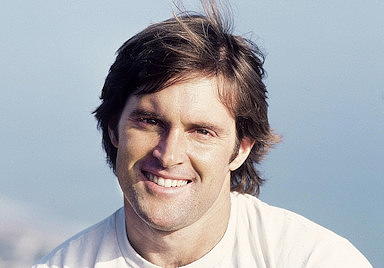 Bruce Jenner that was. Jenner is a professed Christian, leans politically conservative, and is a Republican. Prior to her public gender transition, she had been married three times. Her first marriage was to Chrystie Scott (née Crownover) from 1972 to 1981. They have two children, son Burton and daughter Cassandra, known as Burt and Casey. Jenner and Scott's divorce was finalized the first week of January 1981. The same week, on January 5, 1981, Jenner married actress Linda Thompson, in Hawaii. By February 1986, Jenner and Thompson had separated, and they subsequently divorced. They have two sons together, Brandon and Sam Brody, known as Brody. The two sons starred on the reality show The Princes of Malibu and Brody Jenner was also on the reality show The Hills. Jenner's third marriage, to Kris Kardashian (née Houghton), occurred on April 21, 1991, after five months of dating. They have two daughters, Kendall and Kylie. While married, Jenner was also the step-parent to Kris's four children from her previous marriage to the late lawyer Robert Kardashian: Kourtney, Kim, Khloé and Rob. The couple announced their separation in October 2013, though they had actually separated a year earlier. Kris filed for divorce in September 2014, citing irreconcilable differences. Their divorce terms were finalized in December 2014 and went into effect on March 23, 2015, because of a six-month state legal requirement. In an April 2015, 20/20 interview with Diane Sawyer, Jenner came out as a trans woman saying she had dealt with gender dysphoria since her youth, and that, for all intents and purposes, "I’m a woman." Jenner cross dressed for many years and did hormone replacement therapy but stopped after the romance with Kris Kardashian in the early 1990s became more serious. Caitlyn recounts having permission to explore her gender identity on her own travels but not when they were coupled, and that not knowing the best way to talk about the many issues contributed to the deterioration of the 22-year-long marriage which formally ended in 2013.
1963 – Chris Gonzalez was an activist who succumbed to AIDS on May 5, 1994 in Indianapolis. He left a legacy for gay and lesbian youth in and around the Indianapolis area that continues through the non-profit organization he founded, Indiana Youth Group (IYG), one of the first organizations in the country to support gay, lesbian, bisexual, and transgender youth. Chris was born in 1963 and grew up as the typical model student in Griffith, Indiana. Always a well-spoken and well-liked student, he served as student council president at Griffith High School. He even dated a pretty pompon girl at one time. However, like so many gay teenagers, Chris was leading a double life in order to cover up who he was inside. Chris was ashamed of his homosexuality and felt like he had to prove to others that he was worthy. He did not want to be a homosexual because he was quite aware of society's small-minded opinions and misconceptions of gay people. He grew up in Lake County in a "very traditional Hispanic family" As a member of the Hispanic community, he felt his family would disown him if they ever found out he preferred boys over girls. He pursued his gay identity while still a student at Franklin College of Indiana where he was an active member of the Sigma Alpha Epsilon fraternity, and a journalism major. Gonzalez met his life partner Jeff Werner at Franklin College, located in Franklin, Indiana, and by the time he completed his degree, "he came to terms with the fact that he was among the 10 to 15 percent of the population who are homosexual, and thus, learned to accept and like himself." Gonzalez made the fateful decision to come out to his parents and much to his surprise, his Catholic father and his very religious mother accepted him unconditionally. Chris became a volunteer counselor for the Gay/Lesbian Switchboard in Indianapolis. During those early years, (the 1980s), the hotline was the sole link to teens who were grappling with their sexuality, peer pressure, sexual identity, parents and family issues, etc. Through calls from a mass number of lonely and isolated youth it quickly became apparent to him that support was needed. The chilling calls reminded Gonzalez of his own journey and he was unwilling to let the gay and lesbian-identified adolescents remain "stuck in a self-hatred kind of place." Founded in 1987 as a response to the needs of self-identified Lesbian, Gay, Bisexual, Transgender or Questioning youth, Indiana Youth Group (formerly known as Indianapolis Youth Group) held its first meeting in the living room of founders, Chris Gonzalez and Jeff Werner with support from Pat Jordan. IYG has garnered countless awards, grants and state funding. In 1992, it was featured on ABC News program 20/20. IYG continues to operate the activity center and provides support groups and workshops on a variety of topics. Additionally, IYG fosters working relationships with high schools around the state to form and support Gay-straight Alliances. Gonzalez is buried alongside his partner Jeff at Crown Hill Cemetery in Indianapolis.
1966 – (Matthew Nathan) Matt Drudge is an American political commentator, and the creator and editor of the Drudge Report, a politically conservative American news aggregator. Drudge has also written a book and hosted a radio show and a television show. Drudge was unknown before he began the news aggregation site, the Drudge Report. For many years, he took odd jobs such as night counterman at a 7-Eleven convenience store, telemarketer for Time-Life books, McDonald's manager, and sales assistant at a New York City grocery store. In 1989, he moved to Los Angeles, where he took up residence in a small Hollywood apartment. He took a job in the gift shop of CBS studios, eventually working his way up to manager. Here, he was apparently privy to some inside gossip, part of the inspiration for founding the Drudge Report. Worried about his son’s aimlessness, Drudge's father insisted on buying him a Packard Bell computer in 1994. The Drudge Report began as e-Mail notes sent out to a few friends. The original issues were part gossip and part opinion. They were distributed as an e-Mail newsletter and posted to alt.showbiz.gossip Usenet forum. In 1996, the newsletter transitioned slowly from entertainment gossip to political gossip and moved from e-Mail to the Web as its primary distribution mechanism. In March 1995, the Drudge Report had 1,000 e-Mail subscribers; by 1997, Drudge had 85,000 subscribers to his e-Mail service. Drudge's website gained in popularity in the late 1990s after a number of stories which he reported before the mainstream media. Drudge first received national attention in 1996 when he broke the news that Jack Kemp would be Republican Bob Dole's running mate in the 1996 presidential election. In 1998, Drudge gained popularity when he published the reporting of then Newsweek Reporter Michael Issikoff, becoming the first media outlet to publish the news that later became the Monica Lewinsky scandal. Drudge had a long relationship with Washington D.C. landscaper, David Cohen. Cohen confirmed the relationship to the New York Daily News. Drudge was listed on Out Magazine's Power List of the top 50 "list of gay men and women whose power and prestige is instrumental in influencing how we think about, and engage with, the world" in 2011, 2012, and 2013. Drudge specifically denied being homosexual in response to the Out Magazine article. However, he gifted a $700,000 house next door to his own $1.45 million Miami residence to his "longtime housemate" Juan Carlos Alvarado. Alvarado and Drudge had shared a residence for 11 years. David Brock, the former right-wing writer, wrote in his memoir Blinded by the Right about a "scary" date in which Drudge, after bringing Brock flowers and navigating the Santa Monica gay strip "like a pro," stepped on a competing suitor's foot "really hard" (in Drudge's purported words) in a nightclub to scare him away from Brock. He also reproduced an overly blunt email in which Drudge wrote, "Laura [Ingraham] spreading stuff about you and me being fuck buddies. I should be so lucky." Alec Baldwin stated that Drudge made an advance on him in an ABC Studios hallway, a proposition that had "kind of a creepy quality to it."
1971 – The Oregon Medical Board gives a Gay physician 10 years probation that includes never having sex and not treating any Gay or Lesbian patients. A court later overturns these restrictions.
1987 – Frank Ocean (born Christopher Breaux) is an American singer-songwriter and rapper. Ocean started his career as a ghostwriter for artists such as Brandy, Justin Bieber, and John Legend. In 2010, he became a member of alternative hip hop collective OFWGKTA also known as Odd Future, and his debut mixtape, Nostalgia, Ultra, was released to critical acclaim in 2011. The singles "Novacane" and "Swim Good" both achieved chart success. His debut studio album, Channel Orange, was released in July 2012, promoted with three charting singles: "Thinkin Bout You", "Pyramids", and "Sweet Life". In 2005, Hurricane Katrina hit Ocean's hometown of New Orleans and his recording facility was destroyed by floodwater and looting. To continue recording music, he moved to Los Angeles and intended to stay for just six weeks but decided to stay longer and develop his music career after establishing contact with people in the music industry. He recorded some demos at a friend's studio and shopped them around Los Angeles. After getting a songwriting deal, he started working with other record producers and wrote songs for artists such as Justin Bieber, John Legend, Brandy, and Beyoncé. Ocean later said of his work at the time, "There was a point where I was composing for other people, and it might have been comfy to continue to do that and enjoy that income stream and the anonymity. But that's not why I moved away from school and away from family." Ocean became one of the first major African-American music artists to announce that he had once fallen in love with someone of the same sex, notable because that music scene is known for homophobia. Ocean wrote an open letter, initially intended for the liner notes on Channel Orange, that would preemptively address speculation about his same-sex attraction. Instead, on July 4, 2012, he published an open letter on his Tumblr blog recounting unrequited feelings he had for another young man when he was 19 years old, citing it as his first true love. He used the blog to thank the man for his influence, and also thanked his mother and other friends, saying "I don't know what happens now, and that's alrite. I don't have any secrets I need kept anymore … I feel like a free man."Members of the hip hop industry generally responded positively to the announcement. Russell Simmons, a business magnate in the hip hop industry, wrote a congratulatory article in Global Grind saying "Your decision to go public about your sexual orientation gives hope and light to so many young people still living in fear." Other artists who expressed their support included Beyoncé and Jay-Z.
1987 – The Human Rights Campaign Fund began running ads on this date in response to an amendment introduced in the Senate by the virulent homophobe Sen. Jesse Helms and passed by the house and senate to restrict funding to AIDS organizations which distributed Gay-related prevention literature.
1987 – At the University of Vermont in Burlington nineteen people were arrested in a demonstration protesting the CIA's exclusion of Gays and Lesbians on this date.
1990 – Placido Domingo and Andre Watts raised $1.5 million at a fundraiser for the Gay Men's Health Crisis.
1992 – Episcopal bishop A. Theodore Eastman issued an order to clergy in Maryland not to bless same-sex unions.
1997 – The National Black Lesbian and Gay Leadership Forum condemned homophobic gospel singers Angie and Debbie Winans for their anti-Gay song "It's Not Natural" and BET-TV for providing them with a one-sided forum to promote their homophobic views. Earlier in the year, BET-TV refused to air MeShell Ndegeocello's video "Leviticus Faggot," about a black Gay teenager's struggle to come to terms with his sexuality.
1998 – On this date Welsh secretary Ron Davies resigned from Tony Blair's Labour Party government after British tabloids reported he was robbed at knife-point in a London park while looking for a male sexual companion. Although he subsequently came out as Bisexual, Davies referred to the incident as his "moment of madness." In 1999 Davies was successfully elected on 6 May 1999 as Member of the Welsh Assembly in the Caerphilly Constituency, and chaired the Economic Development Committee after Alun Michael refused to appoint him to his Cabinet. Shortly before the 2003 assembly elections, "The Sun" revealed that Davies had been visiting a well-known cruising spot near a motorway lay-by (rest stop). When challenged as to what he had been doing there, Davies initially denied being there, then told reporters that he had been going for a short walk, adding: "I have actually been there when I have been watching badgers." Davies was forced to stand down as Labour candidate in the election.
2008 – Gus Van Sant's Harvey Milk biopic premiered to a star-studded audience at San Francisco's Castro Theater. Milk would go on to win various Oscars at the 2009 Academy Awards.
2009 – President Barack Obama signed the The Matthew Shepard Act (officially the "Matthew Shepard and James Byrd, Jr. Hate Crimes Prevention Act") into law. The Act expanded the 1969 United States federal hate-crime law to include crimes motivated by a victim's actual or perceived gender, sexual orientation, gender identity, or disability. It was finally passed after almost two decades of attempts to pass it through Congress and over stiff opposition by members of the Republican party. During debate in the House of Representatives, Republican Representative Virginia Foxx of North Carolina called the "hate crime" labeling of Shepard's murder a "hoax."
[{(o)}]|[{(o)}]|[{(o)}]|[{(o)}]| [{(o)}]|[{(o)}] |

